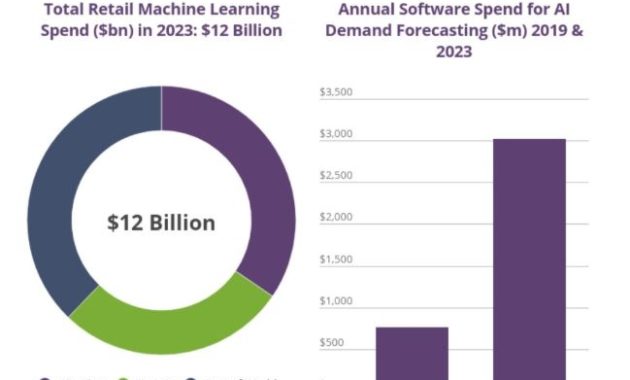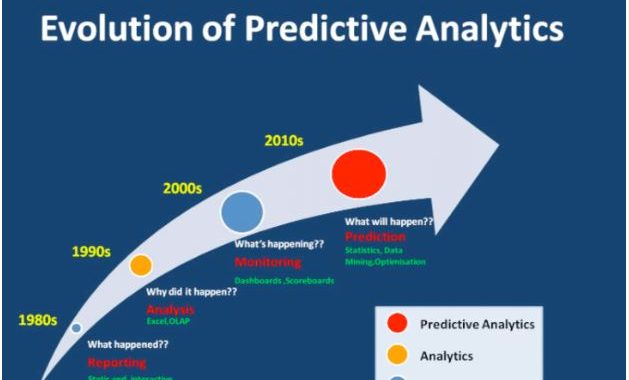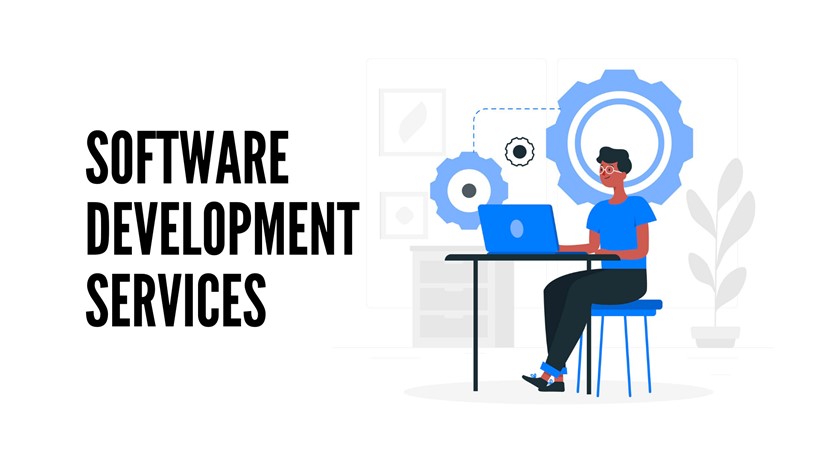Machine Learning for Analytics in Retail: Top 10 Cases and Key Benefits
Introduction
We live in fascinating times, where technologies take over and disrupting entire industries and could be a deciding factor in a competitive advantage of a particular business. You probably heard about Artificial Intelligence, Machine Learning, and Big Data. But is there really any substance behind the hype? For Retailers, that rely on sales for ages, keeping a finger on a pulse of technology is crucial for survival. In this article, we will dive deep to find out exactly how the retail industry could benefit from Machine Learning in the analytics area.
What is Machine Learning?
Machine Learning (ML) technology is a subdivision of Artificial Intelligence (AI) that enable systems to learn and improve based on their own experience, without being explicitly programmed by human experts. The whole point of ML is developing computer programs that will be able to autonomously access data and learn from it. Check out for data science course
What retailers think about AI/ML innovation?
The retail industry is at the forefront of Artificial Intelligence, reaping the benefits of the technology to increase sales, automate processes, improve customer experience and help to build a strong brand image. It’s no wonder, that it is forecasted by Jupiter Research that over 300 000 retailers will use Artificial Intelligence in some form by 2023, while 1.4 billion transactions will be facilitated by smart technologies. The future spending on technology is quite impressive:
A significant chunk of that $12 billion Machine Learning retail spending will go to some kind of AI-based analytics solution, like demand forecasting, customer sentiment analysis or price optimization. Let’s take a closer look at some real-world applications of Machine Learning in the Retail context to fully understand its capabilities.

Top 10 cases of Machine Learning in Retail
Industry leaders are already implementing AI/ML to achieve analytics capabilities unavailable with much older approaches. Machine Learning in retail focuses on analyzing the key aspects of customer behavior providing conclusions to build a strategy on.
Amazon
Being the top retail company on the planet, Amazon collected the biggest volume of customer data compared to any other retailer. Amazon derives its business insights from precise Machine Learning-based analytics, like generating personalized product recommendations and making predictions on the demand for certain products. ML also helps to improve security, detecting suspicious activities and preventing fraud transactions.
Walmart
This creation of Mr. Sam Walton already became the biggest private employer in the world thanks to the decades of effort put in by him and his family. Walmart continues to stay at the top, taking advantage of Machine Learning. They use ML for delivery routes optimization, increasing the speed of the checkout process, and based on personal purchase and web browsing history – individual recommendations and targeted ads.
Target
Selling almost everything we need in our daily lives, Target decided to analyze information about their customers with the help of Machine Learning to suggest products based on the client’s condition. What does that mean? Well, their system can identify women most likely to be pregnant based on their buying habits and suggest their items accordingly.
Alibaba
This B2B juggernaut from China is aiming to help small retailers. Previously using Big Data analytics, they added ML analysis to find out what are the most popular price points for the products that are sold in the stores of their retailer clients.
The North Face
This adventure gear and outdoor wear brand leverage Artificial Intelligence to make it easy for the customers to find out what exactly they are looking for. They partnered with IBM Watson to deliver a combination of Machine Learning and Natural Language Processing technologies with an interactive and friendly interface.
Gifts When You Need
Speaking of IBM Watson, here is another ML use case for an E-Commerce retailer. Gifts When You Need is an AI-powered gift concierge by 1-800-Flowers.com. This is more than just a chatbot application – during the conversation with the customer, the service learns the information about the gift recipient and compares that with the other similar portraits of the client. Just like a real concierge in the store with real experience on the job. Less than in two months, over 70% of the online orders for 1-800-Flowers were completed through Gifts When You Need.
American Eagle Outfitters
This is an interesting case of using image recognition technology by a top garment brand. They partnered with a startup Slyce to provide image search functionality in their stores. Slyce’s mobile application allows customers to find a specific garment in the store analyzing the images made by the camera of their device.
Conversica
This software is built to automate and boost sales by basically finding and making a conversation with leads on the internet. Messages generated by Conversica result in an almost 40% engagement rate on average. Star2Star Communications achieved a 30% response rate in mere hours after introducing a “sales representative” with ML capabilities. Conversica could also be used to engage with existing leads and for cross-selling.
Pepper Robot
SoftBank from Japan and Aldebaran, a robotic manufacturer from France presented Pepper – humanoid robot that can interact with customers. Six years later after the release in 2010, Pepper was introduced in Ave, a cool apparel store. It resulted in an astonishing 300% revenue increase with a 98% increase in customer engagement thanks to this artificially intelligent wonder!
PayPal
2013 was the year when PayPal started to implement Machine Learning for fraud detection, protecting transactions of the customers. Algorithms learned an impressive number of various fraudulent scenarios since then, leading to a 0.32% fraud rate, a 1% better than the majority of other similar payment systems on average.
All presented cases here are showing that those businesses will definitely keep on pushing Machine Learning technology for more value, out of automation, customer engagement, and analytics. You can check online for an ad fraud detection company if you are in need of one. Let’s move on now, to understand what is Predictive Analytics and how you can benefit from it.
What is the difference between Predictive Analytics and Machine Learning?
Well, first what you need to know that it is not the same thing! Predictive analytics uses Machine Learning, as well as other statistical techniques like data mining and predictive modeling, to estimate possible outcomes based on both historical and current data. Quite different from the definition of Machine Learning at the beginning of the article, right?

Key Benefits of Predictive Analytics in Retail
It is important to mention that there are many more ways to implement it, even in the Retail industry alone, however, we will go through the essential ones here.
Leveraging AI for customer behavior analysis
Probably the most important out of the benefits of Predictive Analytics in retail. What is more important to understand your customers better? AI for customer behavior analysis is a broad concept but in our case, Predictive Analytics is a technique heavily relying on data. It can provide some useful insights very fast, analyzing the massive amount of information collected over time.
Precise price prediction
Predictive Analytics and Machine Learning can help retailers to determine optimal prices, build pricing and promotional strategies, ultimately increasing sales as a result. Real-time data is taken into consideration, but also external factors like weather conditions or global health situations to adjust prices accordingly.
Effective inventory management
Keeping your inventory in check with the current demands for the products is very important, luckily with the right and timely analysis you will know how to handle this area efficiently.
Improved recommendation engines
Think one step beyond making recommendations according to only purchase history. With the Predictive Analytics capabilities, it is possible to forecast what your customer wishes even before he or she will know it, and offer the products!
Smarter revenue forecasting
The same can be applied in forecasting your revenue. The technology can add those future buying habits to the historical information, analyze it and provide you more accurate estimates of your bottom line.
Stronger social media presence
Predictive Analytics can offer an entirely new level of building social media strategies, helping to create more effective promotional campaigns and provide you with all the insights you need to maximize results from your effort.
Summary
Why AI and ML are important for Retail?
Artificial Intelligence and Machine Learning can analyze enormous amounts of information, deriving insights that will not only improve particular businesses but will help to push forward an industry as a whole.
What are the reasons to implement AI and ML in my Retail business?
These technologies can provide your business with a distinct competitive advantage, build a stronger brand image and improve customer experience, resulting in increasing your revenue.
What are the approaches and strategies to do this?
As you saw in use cases, retailers always find technological partners for their ideas, like the North Face and Watson IBM. So, the best strategy to implement Machine Learning for Analytics in your Retail business you will be finding a partner, with the necessary expertise in this field. SPD Group is a company that can help you define a vision, pick the right approach and builds a strategy to fulfill the potential of your business.
Conclusion
As modern companies will explore the true power of such things as Machine Learning for Retail Analytics, we will possibly experience an entirely new world in this industry. Being at the forefront of such innovations is super important for businesses to strive in 2020 and beyond. You still have time to implement your Machine Learning solutions to leave your mark!




